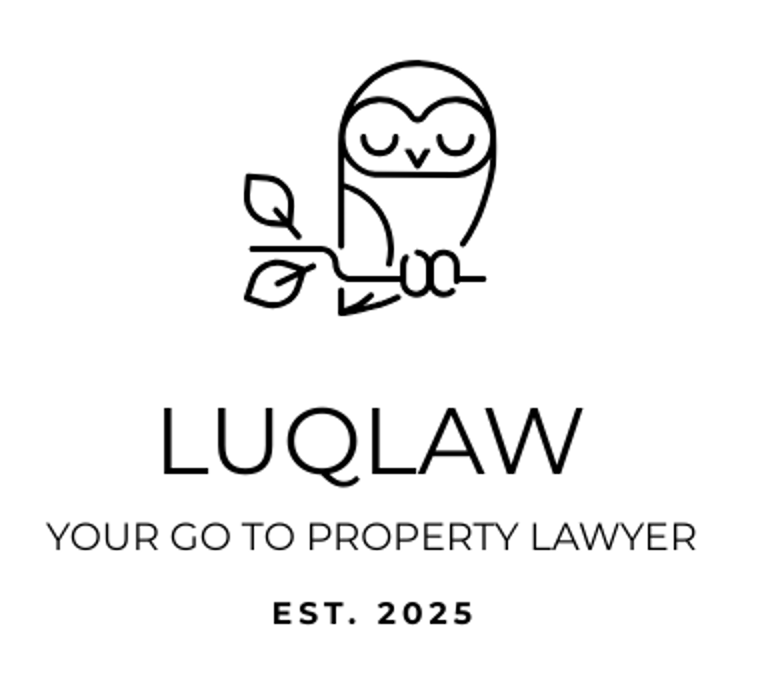Some Important Considerations for Tenants Taking on a New Lease
Things to consider when you are a tenant looking to take a new lease or business tenancy or non-residential commercial property in England and Wales, and the importance of taking legal advice to protect you and your business
COMMERCIAL LEASESTAKING ON A LEASEBUSINESS TENANCIES
Mariam Luqman
6/30/20254 min read


Understanding Lease Types
When diving into the world of non-residential or commercial leases in England, it’s essential to grasp the basic types of leases available.
Leases can differ greatly, whether you’re eyeing a traditional lease, a sublease, or a shorter-term agreement. Each type comes with its own rules and implicates varying levels of responsibility regarding property maintenance, costs, and termination procedures.
Make sure you read the fine print and understand which lease matches your business needs best.
Assessing the Location and Premises
The location of your new premises can make or break your business. When you’re considering a new lease, look beyond just the rent price.
Think about the accessibility for your customers and employees, nearby competition, and any future development plans in the area. A bustling location can be a boon, while a hidden-away spot may limit your visibility.
Consider whether the space itself meets your operational needs. You might need a layout that suits your business model, sufficient parking space, or even a compliant setup for health and safety.
If the lease you are taking is of part of the landlord's premises, consider whether you need certain rights to be in place (e.g. access, services, parking, etc.) over the part of the landlord's premises which are not included in your lease and if so, consider who maintains these, whether you need to contribute to the costs or insuring and repairing them, keeping them clean and lit and whether you are the only tenant entitled to use them.
Negotiating Lease Terms
Once you've settled on a suitable space, the real work begins: negotiation.
This is your chance to clarify any uncertainties or push back on any clauses that don’t sit well with you.
Pay attention to terms like rent, service charge, buildings insurance contributions, rent increases, duration of the lease, repair/insurance obligations, property management and agent fees, and renewal options.
Does the lease allow for modifications as your business grows, or are there restrictions that could limit your future expansion? If you are allowed to carry out alterations/make additions to the premises, do you need the landlord's consent? Are they allowed to simply reject your request or do that unreasonably? Do you have to pay for them to consider your request and also to grant the consent (including legal fees)? This will apply to any initial fit-out works you want to carry out to the premises - do you need to get the landlord's approval and cover their costs for a licence to alter (which is usually completed alongside the lease so you can start work as soon as you complete the lease and move in)?
Are you allowed to sell the lease to another tenant? Think of circumstances where you no longer want to run the business. You are not selling your incorporated business and you want to sell your leasehold interest in the property. Does the lease allow "assignment" of the lease? If so, are there any conditions attached to that? Again, do you need the landlord's consent? Are they allowed to simply reject your request or do that unreasonably? Do you have to pay for them to consider your request and also to grant the consent (including legal fees)? Do you have to enter into a direct guarantee with the landlord that you will guarantee the incoming tenant paying the rent and complying with the terms of the lease?
Will the lease be a protected tenancy - does it benefit from 'security of tenure' under the Landlord and Tenant Act 1954? This is sometimes referred to as being "within the Act" or similar. If the lease is granted "within the Act", then you will benefit from some statutory protections which can include an entitled to renewal of your lease on similar terms at reasonable rents, remaining at the premises whilst paying a low rent after the lease expires which pursuing a renewal, etc. This is beneficial for a tenant but it is not beneficial for a landlord so many landlords will want the lease granted "outside the Act" or "contracted out" of the security of tenure provisions. Shorter term leases (less than 7 years) are usually "outside the Act" but this is not always the case. There is no fixed rule for this and is almost always a matter for negotiation.
Don’t shy away from negotiating; it's expected in these transactions, and a more favorable lease can save you headaches down the line. Engaging a solicitor with experience in commercial leases can also ensure you navigate these terms effectively.
Budgeting for Hidden or Unexpected or Irregular Costs
It’s a common mistake to focus only on the rent when considering a new commercial lease. "Hidden" costs can sneak up and significantly impact your budget.
Ensure you account for service charges, business rates, utilities, and maintenance costs. Additionally, consider the costs associated with moving and fitting out the new space. Having a comprehensive budget will provide stability as you transition into your new premises.
Legal Compliance and Regulations
Every commercial space must adhere to specific legislation. This could include planning laws and regulations, health and safety regulations, and fire safety compliance.
Double-check whether the premises meet all necessary legal requirements. Failing to comply could result in penalties or, worse, hinder your business operations. Worse yet, not complying with certain planning laws, such as works to a listed building not being authorised by the local planning authority in a formal consent can result in unlimited fines and criminal prosecution - yes, that means prison time for you, so please do carry out all the necessary checks. It is your responsibility as the tenant to carry out all due diligence on a premises before taking on the lease, the landlord will not be responsible if you later find an issue which you could have found out about before entering into the lease by carrying out all the usual checks.
In summary, taking on a new lease of non-residential, commercial, or mixed-use premises in England isn’t just about the location and rent. It requires a keen understanding of the lease types, thorough assessments of the premises, savvy negotiation of terms, careful budgeting for hidden costs, and strict adherence to legal regulations. By keeping these considerations in mind, your transition into the new space can be a success.
We are here to help!
LuqLaw is always on hand to help with leasehold property transactions, whether you need advice on a draft lease or for the whole transaction dealt with on your behalf whilst you receive advice throughout! Get in touch and lets work together.
Expert legal advice for property transactions and more
LuqLaw Limited is a company registered in England and Wales with Companies House registration number 16496076
© 2025 All rights reserved
